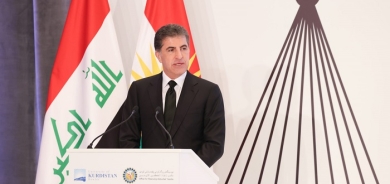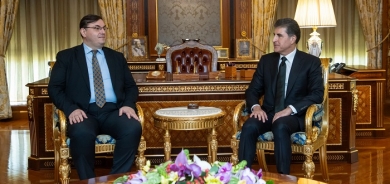‘Turkey in latent civil war’: Erdogan’s dangerous game

Since the end of July, dozens of people have been killed in almost daily clashes between Turkish security forces and PKK militants in the country’s predominantly Kurdish southeast.
The recent surge in violence has threatened to derail plans to hold early parliamentary elections on November 1. The snap vote was called by Erdogan after his ruling Justice and Development Party (AKP) lost its absolute parliamentary majority in legislative elections on June 7.
But just two months ahead of the elections, Kurdish political leaders have accused Erdogan of deliberately fueling the conflict with Kurds for his own political gain.
FRANCE 24 spoke with Jean Marcou, a professor at the Grenoble Institute of Political Studies, who was able to deconstruct some of the causes of Turkey's latest outbreak of violence.
FRANCE 24: Turkey is gripped by violence. Do you think that the recent fighting is part of a political game being played by Erdogan, who hopes to win the country’s early parliamentary elections on November 1?
Jean Marcou: It’s undeniable that Recep Tayyip Erdogan’s dream to consolidate power by modifying the constitution was thwarted by the results of the country’s June 7 elections, which deprived his AKP of an absolute majority in parliament. It’s an outcome that he has clearly struggled to accept, as is evidenced by his efforts to block the formation of a coalition government.
Strategically, he thinks that the outbreak in violence, as troubling as it is for the country’s future, could benefit him if he does nothing to ease tensions and instead plays the nationalist card. Perhaps he’s using fear to get former supporters to vote for him again in the hopes that he will restore security to the country. It’s a very dangerous game, because Turkey is in a latent civil war. In addition to clashes between Turkish security forces and the PKK, there have been daily incidents in Kurdish villages and towns. The offices of the People’s Democratic Party (HDP), the country’s main pro-Kurdish party, as well as those of opposition media, such as daily newspaper "Hürriyet", have been attacked and burnt down by far-right nationalists and AKP supporters.
Do you think Turkish voters have been deceived?
Voters are far from being deceived. Recent polls show that the country’s upcoming elections will have the same results as the vote in June. Although it’s important to be careful with numbers, it looks like the HDP may do even better this time, while the AKP may be set for a new blow. In reality, Recep Tayyip Erdogan, who is now fighting for political survival, has become a very divisive figure in Turkey. Many Turks don’t understand why, after promising to end fighting with the Kurds and launching a peace process, he has suddenly opted for a military response.
It has escaped no one that Turkey’s current “war against terrorism” is largely focused on the PKK, instead of jihadists from Daech [the Islamic State group]. At the same time, it’s important to remember that there are a number of Turks who believe that PKK’s hardline faction, which does not support a political solution, is in part responsible for the resurgence in violence.
Can the upcoming elections be held amid such violence? Is a peace process still possible with the Kurds?
As for the vote, it’s true that the current context makes it very difficult, with towns under curfews and victims on both sides every day. But the government has no choice. If there are no elections, the country will find itself at a political impasse. In the end, any government that is formed after the elections will have to deal with the Kurdish issue. And, knowing that it’s a problem that can’t be solved with violence, it’s inevitable that the peace process will resume. But in order to do that, tensions must abate in the country and surrounding region.
This article was adapted from the original in French.
FRANCE24















